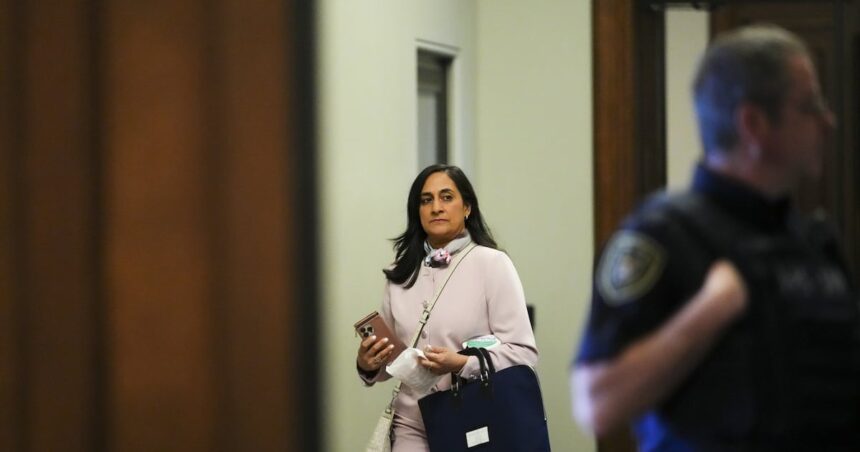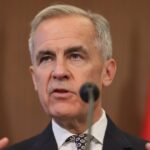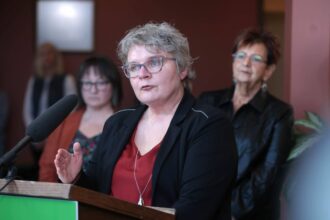In a sweeping address that signals a potential paradigm shift in Canadian diplomacy, Foreign Affairs Minister Anita Anand declared today that Canada can no longer afford a “business as usual” approach to global affairs amid escalating international tensions. Speaking to a packed audience at the University of Toronto’s Munk School of Global Affairs, Anand outlined an ambitious foreign policy reform agenda aimed at repositioning Canada on the world stage by early 2025.
“The global order is undergoing seismic shifts that demand immediate and thoughtful response,” Anand stated, her voice resonating with urgency. “We cannot waste any time—not a single day—as conflicts intensify and authoritarian regimes expand their influence across multiple continents.”
The minister’s remarks come at a critical juncture for Canadian foreign policy, with ongoing conflicts in Ukraine and the Middle East, rising tensions in the Indo-Pacific region, and increasingly assertive stances from China and Russia challenging Western democratic alliances. Experts from across the political spectrum have characterized her speech as perhaps the most significant foreign policy declaration from a Canadian official in over a decade.
Central to Anand’s proposed reforms is a comprehensive restructuring of Global Affairs Canada, including an enhanced diplomatic corps with specialized regional expertise and rapid deployment capabilities for crisis zones. The plan allocates an additional $1.2 billion over three years to strengthen Canada’s diplomatic infrastructure, with particular focus on regions where Canadian influence has traditionally been underrepresented.
“Our diplomatic presence must be robust, informed, and nimble,” Anand emphasized. “The era of reactive diplomacy is behind us. Canada must help shape events, not merely respond to them.”
Former Canadian ambassador to the United Nations Catherine McKenna praised the initiative, telling CO24: “This represents the kind of forward-thinking approach Canada has needed. The challenge will be maintaining political will through implementation.”
The proposed reforms also include establishing a specialized unit within Global Affairs dedicated to monitoring and countering disinformation campaigns targeting democratic institutions—a growing concern highlighted in recent national security assessments. The unit would collaborate with international partners and leverage Canadian expertise in digital governance.
On the economic front, Anand outlined plans to diversify Canada’s trade relationships beyond traditional partners, acknowledging shifting global economic power dynamics. “Our prosperity cannot be tied to a single set of relationships,” she noted. “We must build resilient economic partnerships across continents while standing firm on our values of human rights and rule of law.”
Opposition critics have questioned the timing of the announcement, with Conservative foreign affairs critic Michael Chong suggesting the reforms may be “too little, too late” given Canada’s diminished international standing. “We’ve lost ground on the world stage over the past decade,” Chong stated. “This administration needs to acknowledge that reality before meaningful reform can begin.”
Nevertheless, international relations specialists have largely welcomed the minister’s proposed direction. Dr. Jennifer Welsh, Director of the Centre for International Peace and Security Studies at McGill University, described the speech as “potentially transformative” if properly executed.
“Minister Anand has correctly identified that the international system is at an inflection point,” Welsh noted. “The question now becomes whether Canada can translate this vision into tangible diplomatic outcomes that advance both our interests and values.”
As global power dynamics continue to evolve and traditional alliances face unprecedented strain, Anand’s reform agenda represents a significant bet on Canada’s ability to adapt and remain relevant. With implementation set to begin immediately, the coming months will determine whether this ambitious vision can overcome bureaucratic inertia and political headwinds to reshape Canadian foreign policy for a turbulent new era.
The fundamental question remains: Can Canada successfully reinvent its diplomatic approach in time to meaningfully influence the trajectory of a rapidly changing global order, or will these reforms prove insufficient against the tide of geopolitical transformation reshaping our world?














